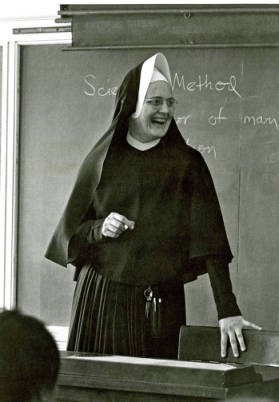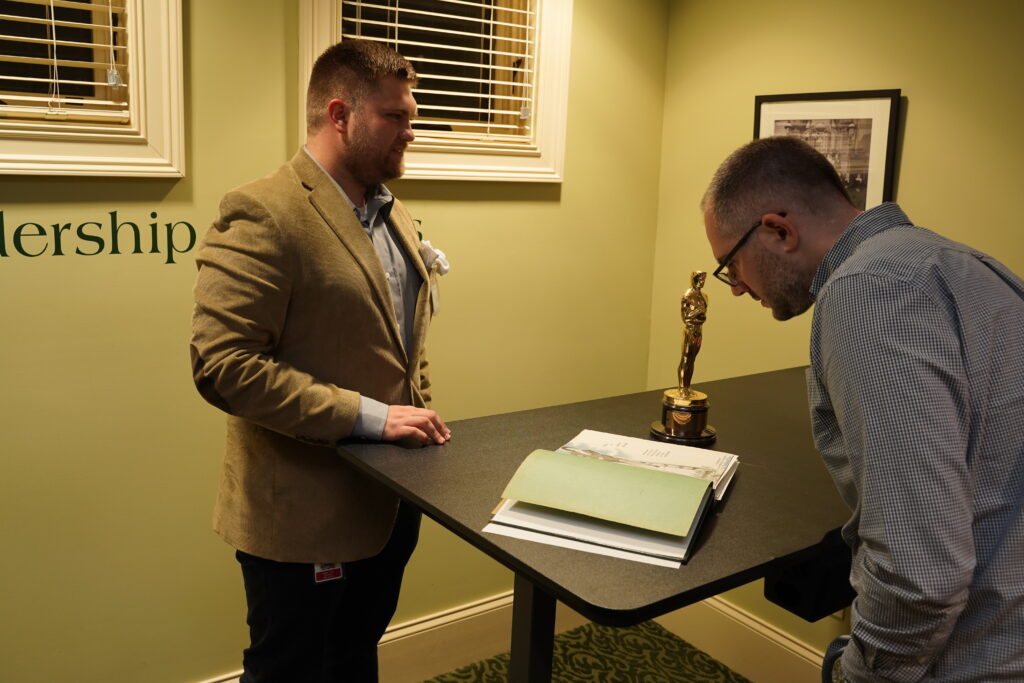It is so hard to believe that my two years with the Women and Leadership Archives is coming to a close. My time here has shown me that there is never a dull day at the WLA, which has given me so many incredible memories and I am happy to share a few with you now.
Favorite Memory
One of my favorite experiences came from doing a reference request on Dr. Irene Meyer. Meyer was a professor of psychology at Mundelein College, and she worked to bring an end to the death penalty in Illinois. The reference request sparked my interest, and I did more research into Dr. Meyer which led to me writing a blog about her for the WLA. I learned that Meyer worked to educate her students on the psychological trauma the death penalty caused inmates, wardens, and guards. This was a moment when I realized there are gems sitting in the archives that may never be uncovered, but I’m glad I was able to come across this one. Sadly, Dr. Meyer is no longer with us, but you can read more about her in this previous blog post: A Visit Turned Crusade: A Struggle to End the Death Penalty

Favorite Event
My favorite event that I’ve attended for the Women and Leadership Archives was for the WLA’s 25th Anniversary. It was such a fun event, and it was rare moment where we as archival workers get to interact with the public in a less formal capacity. It was an opportunity to showcase some of the most unexpected objects in our collection and for the new graduate assistants to explore the collections we may not see in normal day to day work. Also, I got to meet Sister Jean which was a big perk.

I am so sad to be leaving the Women and Leadership Archives, but I am so thankful for the experiences it has given me, the lessons it has taught me, and the colleagues I have gotten to know.

Casey is a Graduate Assistant at the WLA and is in the final year of Loyola University Chicago’s MA in Public History. He has his bachelor’s degree in History and Digital Media from Valparaiso University Valparaiso, Indiana. Casey enjoys early modern history, comics, and knitting.
Loyola University Chicago’s Women and Leadership Archives Blog is designed to provide a positive environment for the Loyola community to discuss important issues and ideas. Differences of opinion are encouraged. We invite comments in response to posts and ask that you write in a civil and respectful manner. All comments will be screened for tone and content and must include the first and last name of the author and a valid email address. The appearance of comments on the blog does not imply the University’s endorsement or acceptance of views expressed. Questions? Please contact the WLA at wlarchives@LUC.edu.
